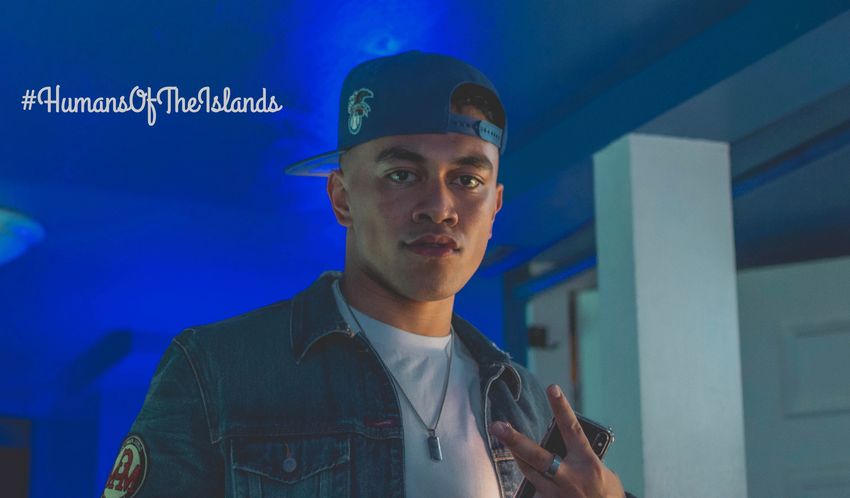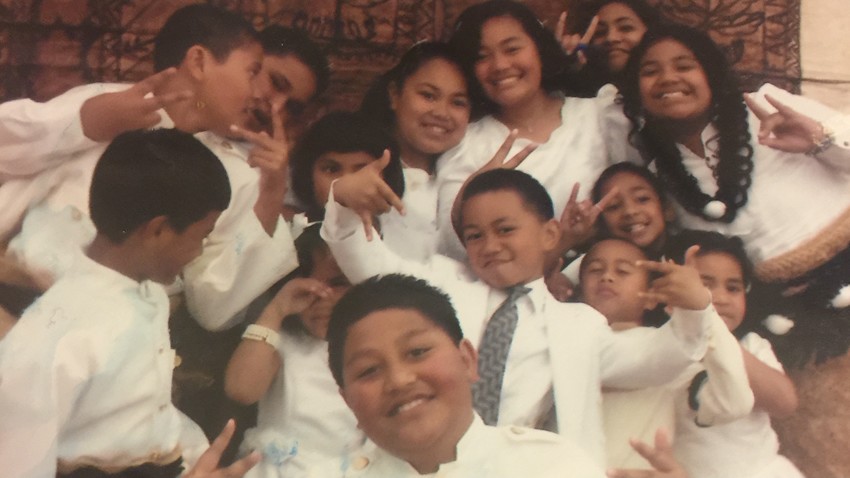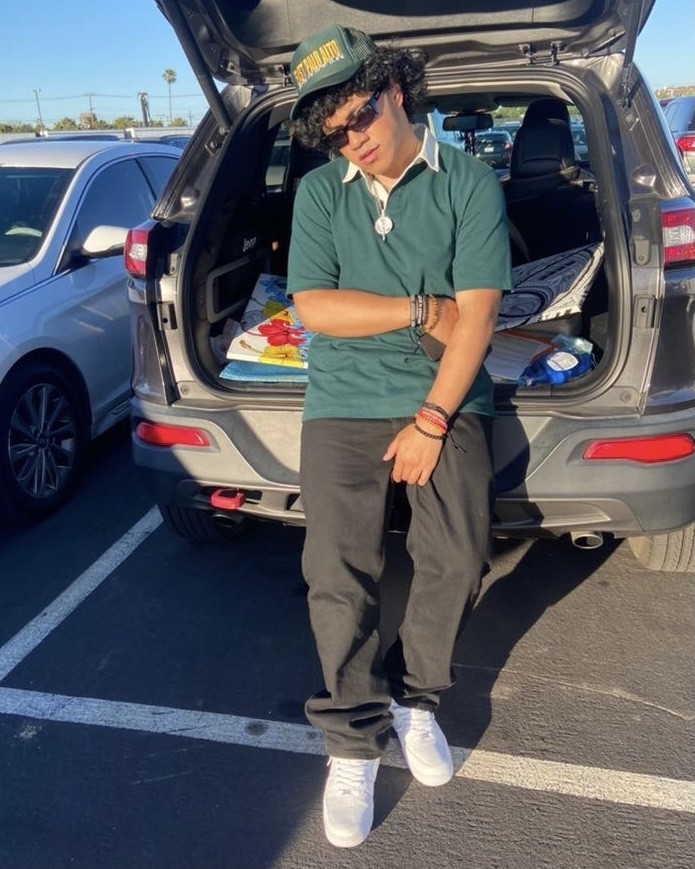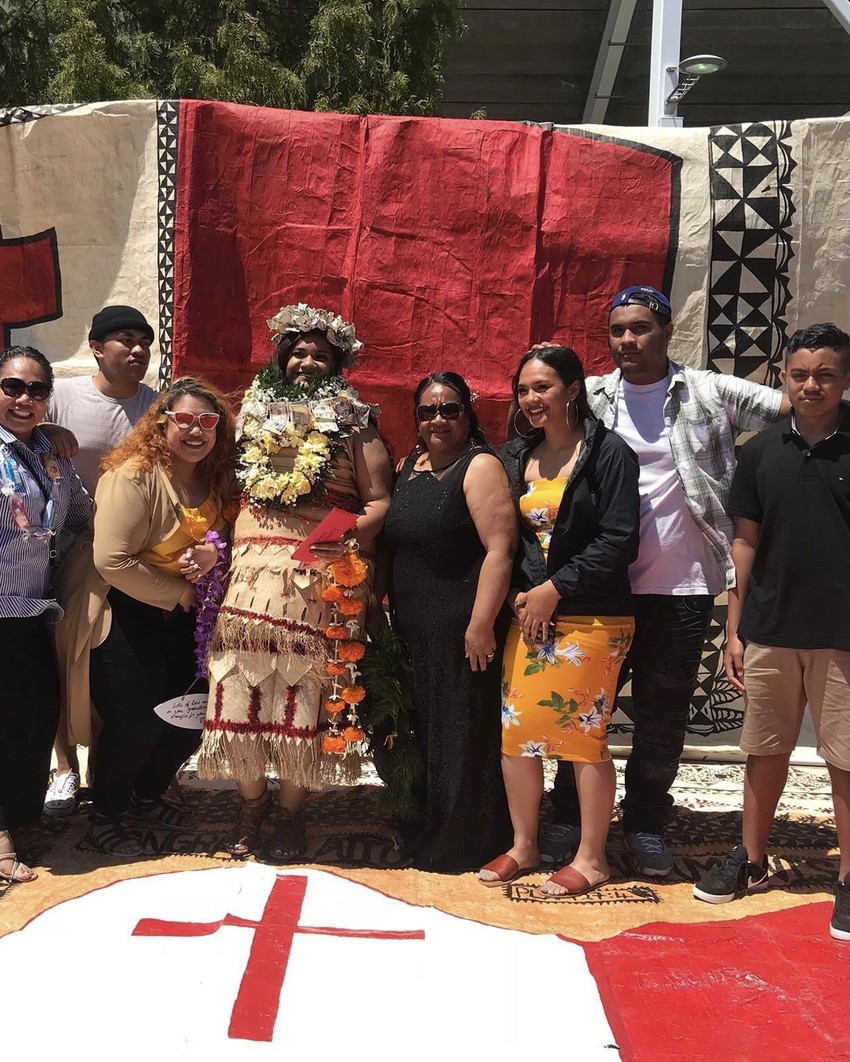HUMANS OF THE ISLANDS - SIONE MOLI aka NONEH.

SIONE MOLI aka NONEH.
HIP HOP ARTIST
TONGAN
-
First off, my real name is Sione Kesome Isileli Moli. I was born on March 29th, 1999 at Stanford Hospital. My parents are Amato and Ala Moli, I have a younger brother named Jeremiah and an older sister named Loisi. My father is from Nuku Nuku, Tongatapu and my mother is from Nuku'alofa, Tongatapu. In terms of my heritage, I’m full Tongan with a bit of Samoan from my great great Grandmother, and I come from a line of hard working individuals who bred greatness.

Growing up, I pretty much lived everywhere, but my life began in East Palo Alto, California. When I was born, my family stayed in a run down apartment complex on a street called Scofield Ave, where there were no playgrounds and sidewalks. That was what East Palo Alto looked like at the time. With roaches on the floor, crime roaming the streets, and my brother on the way, my parents chose to move us out the hood. We stayed in different cities along the South Bay like Mountain View, Sunnyvale, and recently Cupertino, but I never stayed away from my hometown. My parents were always working in the church and kept my siblings and I involved with the youth, so I spent my mornings at school in the suburbs and my evenings at my church: Penieli back in East Palo Alto.

Along with that, my parents did their best to keep me away from the hardships that life in the hood could bring. They introduced me to sports, stamped the importance of Faith, and told me to use school as a stepping stone towards a better life, but being young I would always rebel because of the terms that were attached to the lifestyle that my parents wanted me to have. I would get called all types of names from the kids in the suburbs and then go back to my hometown and get called other names. I went to school with a bunch of kids who never knew what a Tongan was, never had to eat ramen noodles for dinner, and probably never heard of a street light curfew. On the other hand, when I was with the boys in the hood, I was fighting, stealing, and getting pressured by the older kids to represent gangs I didn’t know the true meaning of. With all this confusion, I learned to code switch early on knowing certain behaviors did not mix well according to the environment. Ultimately leading to me being the outgoing person I am today.

With this mixed lifestyle and no true direction other than school and football being my way out, music became my coping mechanism. Music brought understanding. I learned how to articulate the good and bad in my life through song and this is why I started making music.
-
What were the pathways that led you to doing music/singing/songwriting?
I was young and inspired by most mainstream artists like Biggie, Tupac, Chris Brown, etc.. I started out by performing at youth events for church. Over time, my interests in music began to expand and evolve. I began to dive into the stories of the artists I listened to, the history and culture of music. As a kid I was dancing for hip hop performances, hanging out with older guys and learning about different genres of music. I would consistently listen to Pacific Islander music and reggae, listening to artists in the Bay and elsewhere.

As I got older, things started to cloud my passion for music. I’d still dabble here and there, always looking for the next wave of music while every now and then writing my own songs. This innate inspiration that I found in music, the feelings I had, the dreams I gained from it, and any time I was down or needed a place to go, music was always there. School and sports got in the way when I was in high school because music didn’t seem like a real avenue for success. So I tried to focus on school and football because that was all I knew at the time.

Still, I would continue to freestyle and do music related things, but nothing serious. After high school, when I began to search for something more in life, my love of music reemerged. It was allowed to flourish, to endure, and to allow me to become a better version of myself. Sports and my involvement in church built a strong foundation to pursue my current music endeavours.

-
You're a fully independent artist who started releasing music a year ago. Why did you decide to go the Independent route?
Today, if you compare the current status quo to the old, you’ll find that there are more ways for an artist to succeed on their own than there were before. Living in the digital age, we have access to every platform and tool in order to distribute our music, claim our royalties, make our songs, design our own content, etc. Basically, everything and anything that a label can do, you can do for yourself.
Being that I studied the game for so long, I had the knowledge of what was going on behind the scenes in the music industry, and was able to divert my focus from the industry to the actual business of music. Meeting with people like Rich Rollin from Cutthroat Mode coupled with my own knowledge of the music business contributed to my journey as an independent artist.


-
What have been some of the biggest challenges and then some of the most rewarding moments of your musical journey so far?
- My biggest challenges were finding my own sound, who to work with, and trying to find balance in everything. In the search for my signature sound, I struggled with making something that was attractive, but unique to me. I naturally overcame that struggle throughout the process.
- Early in my career, I was willing to work with anybody, because I didn’t know who could help me create the sound I wanted to put out. After a year of working with a plethora of producers, engineers, and artists I found what types of people I wanted to surround myself with. Some of the people I’ve worked with include , Jantz from Cutthroat Mode Productions in the Bay Area, Nameless Beats from Unlabeled Music Services out of Kansas City, and DJ Tiger from my hometown.

- Struggling to do well in school, football, and music combined with the emotional toll of hardships impacted my ability to grow. I was trying to do so many things and at the same time do well in all of them. I soon realized that things weren’t as hard as I thought, all I had to do was take it day by day. When it was time for class, I went to class, when it was time for football, I did football, and when it was time for music, I made music. At the end of the day it came down to time management and making use of the time I was given for each aspect of my life.
- One of the most rewarding moments in my career thus far is the support I’ve received in a short amount of time. Being able to work with people that I look up to in this industry has proven to me that I belong here. The love, motivation, and respect that I’ve earned from my fans, family, and friends is highly endearing. I’ve received the most satisfaction in overcoming adversity and proving to myself that my dreams are becoming a reality.

Who are your favourite musical artists/inspirations and why?
Tupac, Biggie, Bob Marley, 50 Cent, Chris Brown, and Juiceboi. For artists like Tupac, Biggie, and Bob Marley, I was heavily inspired by them because of their ability to relay a message that was true to them, but articulated in a beautiful way. Even with the trauma they faced, they were still able to speak about relatable topics. That’s why I fell in love with music. Knowing that the best in the industry were speaking the truth, it opened up a door for me to express mine. With someone like 50 Cent and Chris Brown, I fell in love with their energy and swagger. I saw through these artists how to be comfortable in my own skin.

Being introduced to these mainstream artists gave birth to my passion in music, but artists like the late Juiceboi from Cutthroat Mode and plenty of other Pacific Islander artists are the reason I wanted to turn my passion into action. Growing up I always knew I wanted to be a star, but having parents with limited vision of what success looked like, my aspirations to become one were not seen as realistic. When I was introduced to Cutthroat Mode everything changed. I saw a group of young Pacific Islanders doing exactly what I wanted to do. Cutthroat Mode was the first group of artists that I saw who looked like me. Now, years later, I was blessed to begin my journey with the people who sparked it.

-
What advice would you give other young Pacific Islander musicians and artists on the come up?
Work hard, study the game, and stay true to yourself. I think a lot of people try to imitate those who made it, which could work for a short time, but if you really want to make it, just do your own thing. It may be slow at first, there may be nothing going, but that’s just because the many people who are going to buy into your craft haven’t heard of you.
Like I said earlier, I struggled with this early on, but after continuing to push my own story, my own sound, and giving thanks to those who appreciated it, I’m here a year later with more confidence, and more knowledge to continue my footprint within the music business.


-
What do you love about being a Tongan man today?
I love the family oriented aspect of Tongan culture, because it creates a tight knit community where you could go anywhere and find family. While also creating even tighter bonds between direct family members. I like the fact that we have a lot of pride in our country. It shows that we never lose our love for our homeland. Even if you were not born there, you still have a connection through the Tongan community.
Even with the world evolving, we always find a way to keep Tongan traditions prevalent. Being that Tonga was founded on the principles of faith, it gave us something to believe in and use as a tool for hope that we can always strive through any challenges the world may present. At the end of the day I just love everything that our culture has to offer.



Peep his latest track in the video below and check out more of his music & interviews here
